- Home
- J. R. R. Tolkien
The Book of Lost Tales, Part 1 Page 3
The Book of Lost Tales, Part 1 Read online
Page 3
Then said Eriol that he would dearly desire to come therein and seek of Vairë and Lindo a night’s guest-kindliness, if so they would, and if he might of his own good wish become small enough there upon the threshold. Then said the other, ‘Enter’, and Eriol stepped in, and behold, it seemed a house of great spaciousness and very great delight, and the lord of it, Lindo, and his wife, Vairë, came forth to greet him; and his heart was more glad within him than it had yet been in all his wanderings, albeit since his landing in the Lonely Isle his joy had been great enough.
And when Vairë had spoken the words of welcome, and Lindo had asked of him his name and whence he came and whither he might be seeking, and he had named himself the Stranger and said that he came from the Great Lands,2 and that he was seeking whither-so his desire for travel led him, then was the evening meal set out in the great hall and Eriol bidden thereto. Now in this hall despite the summertide were three great fires—one at the far end and one on either side of the table, and save for their light as Eriol entered all was in a warm gloom. But at that moment many folk came in bearing candles of all sizes and many shapes in sticks of strange pattern: many were of carven wood and others of beaten metal, and these were set at hazard about the centre table and upon those at the sides.
At that same moment a great gong sounded far off in the house with a sweet noise, and a sound followed as of the laughter of many voices mingled with a great pattering of feet. Then Vairë said to Eriol, seeing his face filled with a happy wonderment: ‘That is the voice of Tombo, the Gong of the Children, which stands outside the Hall of Play Regained, and it rings once to summon them to this hall at the times for eating and drinking, and three times to summon them to the Room of the Log Fire for the telling of tales,’ and added Lindo: ‘If at his ringing once there be laughter in the corridors and a sound of feet, then do the walls shake with mirth and stamping at the three strokes in an evening. And the sounding of the three strokes is the happiest moment in the day of Littleheart the Gong-warden, as he himself declares who has known happiness enough of old; and ancient indeed is he beyond count in spite of his merriness of soul. He sailed in Wingilot with Eärendel in that last voyage wherein they sought for Kôr. It was the ringing of this Gong on the Shadowy Seas that awoke the Sleeper in the Tower of Pearl that stands far out to west in the Twilit Isles.’
To these words did Eriol’s mind so lean, for it seemed to him that a new world and very fair was opening to him, that he heard naught else till he was bidden by Vairë to be seated. Then he looked up, and lo, the hall and all its benches and chairs were filled with children of every aspect, kind, and size, while sprinkled among them were folk of all manners and ages. In one thing only were all alike, that a look of great happiness lit with a merry expectation of further mirth and joy lay on every face. The soft light of candles too was upon them all; it shone on bright tresses and gleamed about dark hair, or here and there set a pale fire in locks gone grey. Even as he gazed all arose and with one voice sang the song of the Bringing in of the Meats. Then was the food brought in and set before them, and thereafter the bearers and those that served and those that waited, host and hostess, children and guest, sat down: but Lindo first blessed both food and company. As they ate Eriol fell into speech with Lindo and his wife, telling them tales of his old days and of his adventures, especially those he had encountered upon the journey that had brought him to the Lonely Isle, and asking in return many things concerning the fair land, and most of all of that fair city wherein he now found himself.
Lindo said to him: ‘Know then that today, or more like ’twas yesterday, you crossed the borders of that region that is called Alalminórë or the “Land of Elms”, which the Gnomes call Gar Lossion, or the “Place of Flowers”. Now this region is accounted the centre of the island, and its fairest realm; but above all the towns and villages of Alalminórë is held Koromas, or as some call it, Kortirion, and this city is the one wherein you now find yourself. Both because it stands at the heart of the island, and from the height of its mighty tower, do those that speak of it with love call it the Citadel of the Island, or of the World itself. More reason is there thereto than even great love, for all the island looks to the dwellers here for wisdom and leadership, for song and lore; and here in a great korin of elms dwells Meril-i-Turinqi. (Now a korin is a great circular hedge, be it of stone or of thorn or even of trees, that encloses a green sward.) Meril comes of the blood of Inwë, whom the Gnomes call Inwithiel, he that was King of all the Eldar when they dwelt in Kôr. That was in the days before hearing the lament of the world Inwë led them forth to the lands of Men: but those great and sad things and how the Eldar came to this fair and lonely island, maybe I will tell them another time.
‘But after many days Ingil son of Inwë, seeing this place to be very fair, rested here and about him gathered most of the fairest and the wisest, most of the merriest and the kindest, of all the Eldar.3 Here among those many came my father Valwë who went with Noldorin to find the Gnomes, and the father of Vairë my wife, Tulkastor. He was of Aulë’s kindred, but had dwelt long with the Shoreland Pipers, the Solosimpi, and so came among the earliest to the island.
‘Then Ingil builded the great tower4 and called the town Koromas, or “the Resting of the Exiles of Kôr”, but by reason of that tower it is now mostly called Kortirion.’
Now about this time they drew nigh the end of the meal; then did Lindo fill his cup and after him Vairë and all those in the hall, but to Eriol he said: ‘Now this which we put into our cups is limpë, the drink of the Eldar both young and old, and drinking, our hearts keep youth and our mouths grow full of song, but this drink I may not administer: Turinqi only may give it to those not of the Eldar race, and those that drink must dwell always with the Eldar of the Island until such time as they fare forth to find the lost families of the kindred.’ Then he filled Eriol’s cup, but filled it with golden wine from ancient casks of the Gnomes; and then all rose and drank ‘to the Faring Forth and the Rekindling of the Magic Sun’. Then sounded the Gong of the Children thrice, and a glad clamour arose in the hall, and some swung back big oaken doors at the hall’s end—at that end which had no hearth. Then many seized those candles that were set in tall wooden sticks and held them aloft while others laughed and chattered, but all made a lane midmost of the company down which went Lindo and Vairë and Eriol, and as they passed the doors the throng followed them.
Eriol saw now that they were in a short broad corridor whose walls half-way up were arrassed; and on those tapestries were many stories pictured whereof he knew not at that time the purport. Above the tapestries it seemed there were paintings, but he could not see for gloom, for the candle-bearers were behind, and before him the only light came from an open door through which poured a red glow as of a big fire. ‘That,’ said Vairë, ‘is the Tale-fire blazing in the Room of Logs; there does it burn all through the year, for ’tis a magic fire, and greatly aids the teller in his tale—but thither we now go,’ and Eriol said that that seemed better to him than aught else.
Then all that company came laughing and talking into the room whence came the red glow. A fair room it was as might be felt even by the fire-flicker which danced upon the walls and low ceiling, while deep shadows lay in the nooks and corners. Round the great hearth was a multitude of soft rugs and yielding cushions strewn; and a little to one side was a deep chair with carven arms and feet. And so it was that Eriol felt at that time and at all others whereon he entered there at the hour of tale-telling, that whatso the number of the folk and children the room felt ever just great enough but not large, small enough but not overthronged.
Then all sat them down where they would, old and young, but Lindo in the deep chair and Vairë upon a cushion at his feet, and Eriol rejoicing in the red blaze for all that it was summer stretched nigh the hearthstone.
Then said Lindo: ‘Of what shall the tales be tonight? Shall they be of the Great Lands, and of the dwellings of Men; of the Valar and Valinor; of the West and its mysteries, o
f the East and its glory, of the South and its untrodden wilds, of the North and its power and strength; or of this island and its folk; or of the old days of Kôr where our folk once dwelt? For that this night we entertain a guest, a man of great and excellent travel, a son meseems of Eärendel, shall it be of voyaging, of beating about in a boat, of winds and the sea?’5
But to this questioning some answered one thing and some another, till Eriol said: ‘I pray you, if it be to the mind of the others, for this time tell me of this island, and of all this island most eagerly would I learn of this goodly house and this fair company of maids and boys, for of all houses this seems to me the most lovely and of all gatherings the sweetest I have gazed upon.’
Then said Vairë: ‘Know then that aforetime, in the days of6 Inwë (and farther back it is hard to go in the history of the Eldar), there was a place of fair gardens in Valinor beside a silver sea. Now this place was near the confines of the realm but not far from Kôr, yet by reason of its distance from the sun-tree Lindelos there was a light there as of summer evening, save only when the silver lamps were kindled on the hill at dusk, and then little lights of white would dance and quiver on the paths, chasing black shadow-dapples under the trees. This was a time of joy to the children, for it was mostly at this hour that a new comrade would come down the lane called Olórë Mallë or the Path of Dreams. It has been said to me, though the truth I know not, that that lane ran by devious routes to the homes of Men, but that way we never trod when we fared thither ourselves. It was a lane of deep banks and great overhanging hedges, beyond which stood many tall trees wherein a perpetual whisper seemed to live; but not seldom great glow-worms crept about its grassy borders.
‘Now in this place of gardens a high gate of lattice-work that shone golden in the dusk opened upon the lane of dreams, and from there led winding paths of high box to the fairest of all the gardens, and amidmost of the garden stood a white cottage. Of what it was built, nor when, no one knew, nor now knows, but it was said to me that it shone with a pale light, as it was of pearl, and its roof was a thatch, but a thatch of gold.
‘Now on one side of the cot stood a thicket of white lilac and at the other end a mighty yew, from whose shoots the children fashioned bows or clambered by his branches upon the roof. But in the lilacs every bird that ever sang sweetly gathered and sang. Now the walls of the cottage were bent with age and its many small lattice windows were twisted into strange shapes. No one, ’tis said, dwelt in the cottage, which was however guarded secretly and jealously by the Eldar so that no harm came nigh it, and that yet might the children playing therein in freedom know of no guardianship. This was the Cottage of the Children, or of the Play of Sleep, and not of Lost Play, as has wrongly been said in song among Men—for no play was lost then, and here alas only and now is the Cottage of Lost Play.
‘These too were the earliest children—the children of the fathers of the fathers of Men that came there; and for pity the Eldar sought to guide all who came down that lane into the cottage and the garden, lest they strayed into Kôr and became enamoured of the glory of Valinor; for then would they either stay there for ever, and great grief fall on their parents, or would they wander back and long for ever vainly, and become strange and wild among the children of Men. Nay, some even who wandered on to the edge of the rocks of Eldamar and there strayed, dazzled by the fair shells and the fishes of many colours, the blue pools and the silver foam, they drew back to the cottage, alluring them gently with the odour of many flowers. Yet even so there were a few who heard on that beach the sweet piping of the Solosimpi afar off and who played not with the other children but climbed to the upper windows and gazed out, straining to see the far glimpses of the sea and the magic shores beyond the shadows and the trees.
‘Now for the most part the children did not often go into the house, but danced and played in the garden, gathering flowers or chasing the golden bees and butterflies with embroidered wings that the Eldar set within the garden for their joy. And many children have there become comrades, who after met and loved in the lands of Men, but of such things perchance Men know more than I can tell you. Yet some there were who, as I have told, heard the Solosimpi piping afar off, or others who straying again beyond the garden caught a sound of the singing of the Telelli on the hill, and even some who reaching Kôr afterwards returned home, and their minds and hearts were full of wonder. Of the misty aftermemories of these, of their broken tales and snatches of song, came many strange legends that delighted Men for long, and still do, it may be; for of such were the poets of the Great Lands.7
‘Now when the fairies left Kôr that lane was blocked for ever with great impassable rocks, and there stands of a surety the cottage empty and the garden bare to this day, and will do until long after the Faring Forth, when if all goes well the roads through Arvalin to Valinor shall be thronged with the sons and daughters of Men. But seeing that no children came there for refreshment and delight, sorrow and greyness spread amongst them and Men ceased almost to believe in, or think of, the beauty of the Eldar and the glory of the Valar, till one came from the Great Lands and besought us to relieve the darkness.
‘Now there is alas no safe way for children from the Great Lands hither, but Meril-i-Turinqi hearkened to his boon and chose Lindo my husband to devise some plan of good. Now Lindo and I, Vairë, had taken under our care the children—the remainder of those who found Kôr and remained with the Eldar for ever: and so here we builded of good magic this Cottage of Lost Play: and here old tales, old songs, and elfin music are treasured and rehearsed. Ever and anon our children fare forth again to find the Great Lands, and go about among the lonely children and whisper to them at dusk in early bed by night-light and candle-flame, or comfort those that weep. Some I am told listen to the complaints of those that are punished or chidden, and hear their tales and feign to take their part, and this seems to me a quaint and merry service.
‘Yet all whom we send return not and that is great grief to us, for it is by no means out of small love that the Eldar held children from Kôr, but rather of thought for the homes of Men; yet in the Great Lands, as you know well, there are fair places and lovely regions of much allurement, wherefore it is only for the great necessity that we adventure any of the children that are with us. Yet the most come back hither and tell us many stories and many sad things of their journeys—and now I have told most of what is to tell of the Cottage of Lost Play.’
Then Eriol said: ‘Now these are tidings sad and yet good to hear, and I remember me of certain words that my father spake in my early boyhood. It had long, said he, been a tradition in our kindred that one of our father’s fathers would speak of a fair house and magic gardens, of a wondrous town, and of a music full of all beauty and longing—and these things he said he had seen and heard as a child, though how and where was not told. Now all his life was he restless, as if a longing half-expressed for unknown things dwelt within him; and ’tis said that he died among rocks on a lonely coast on a night of storm—and moreover that most of his children and their children since have been of a restless mind—and methinks I know now the truth of the matter.’
And Vairë said that ’twas like to be that one of his kindred had found the rocks of Eldamar in those old days.
NOTES
1 Gnomes: the Second Kindred, the Noldoli (later Noldor). For the use of the word Gnomes see p. 43; and for the linguistic distinction made here see pp. 50–1.
2 The ‘Great Lands’ are the lands East of the Great Sea. The term ‘Middle-earth’ is never used in the Lost Tales, and in fact does not appear until writings of the 1930s.
3 In both MSS the words ‘of all the Eldar’ are followed by: ‘for of most noble there were none, seeing that to be of the blood of the Eldar is equal and sufficient’ but this was struck out in the second MS.
4 The original reading was ‘the great Tirion’, changed to ‘the great tower’.
5 This sentence, from ‘a son meseems…’, replaced in the original MS an earlier readi
ng: ‘shall it be of Eärendel the wanderer, who alone of the sons of Men has had great traffic with the Valar and Elves, who alone of their kindred has seen beyond Taniquetil, even he who sails for ever in the firmament?’
6 The original reading was ‘before the days of’, changed to ‘in the first days of’, and then to the reading given.
7 This last phrase was an addition to the second MS.
Changes made to names in
The Cottage of Lost Play
The names were at this time in a very fluid state, reflecting in part the rapid development of the languages that was then taking place. Changes were made to the original text, and further changes, at different times, to the second text, but it seems unnecessary in the following notes to go into the detail of when and where the changes were made. The names are given in the order of their occurrence in the tale. The signs > and < are used to mean ‘changed to’ and ‘changed from’.
Dor Faidwen The Gnomish name of Tol Eressëa was changed many times: Gar Eglos > Dor Edloth > Dor Usgwen > Dor Uswen > Dor Faidwen.
Mar Vanwa Tyaliéva In the original text a space was left for the Elvish name, subsequently filled in as Mar Vanwa Taliéva.
Great Lands Throughout the tale Great Lands is an emendation of Outer Lands, when the latter was given a different meaning (lands West of the Great Sea).
Wingilot < Wingelot.
Gar Lossion < Losgar.
Koromas < Kormas.
Meril-i-Turinqi The first text has only Turinqi, with in one place a space left for a personal name.
Inwë < Ing at each occurrence.
Inwithiel < Gim Githil, which was in turn < Githil.
Ingil < Ingilmo.
Valwë < Manwë. It seems possible that Manwë as the name of Lindo’s father was a mere slip.

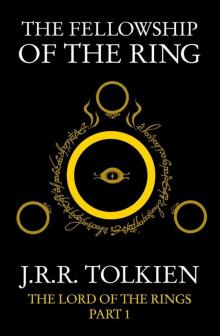 The Fellowship of the Ring
The Fellowship of the Ring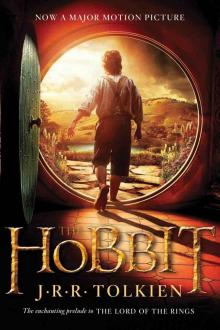 The Hobbit
The Hobbit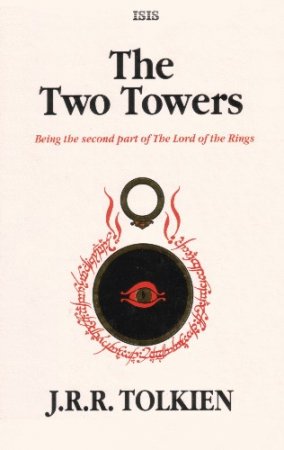 The Two Towers
The Two Towers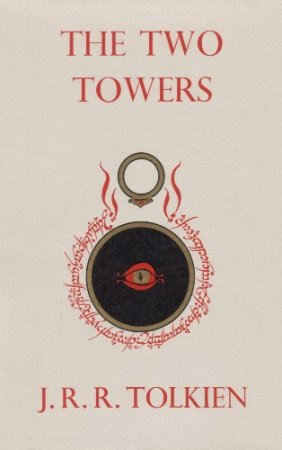 The Return of the King
The Return of the King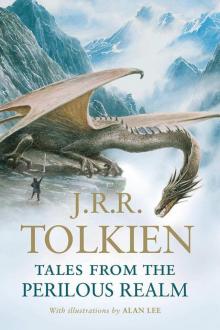 Tales From the Perilous Realm
Tales From the Perilous Realm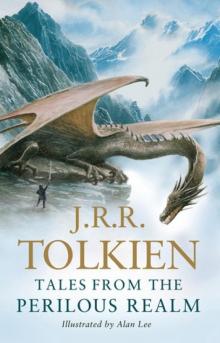 Leaf by Niggle
Leaf by Niggle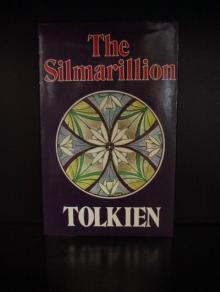 The Silmarillon
The Silmarillon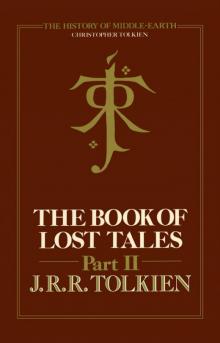 The Book of Lost Tales, Part Two
The Book of Lost Tales, Part Two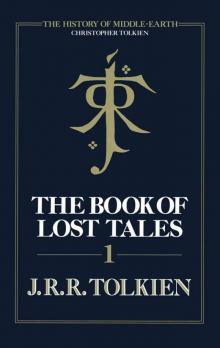 The Book of Lost Tales, Part One
The Book of Lost Tales, Part One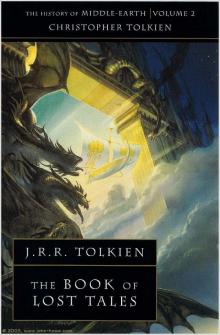 The Book of Lost Tales 2
The Book of Lost Tales 2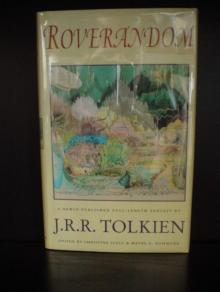 Roverandom
Roverandom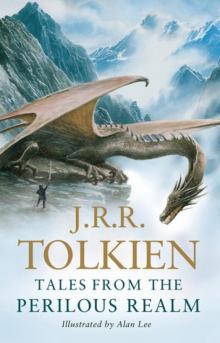 Smith of Wootton Major
Smith of Wootton Major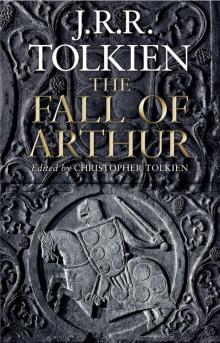 The Fall of Arthur
The Fall of Arthur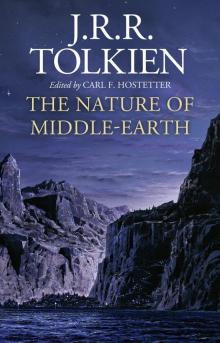 The Nature of Middle-earth
The Nature of Middle-earth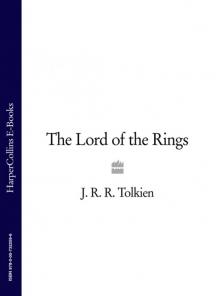 The Lord of the Rings: The Fellowship of the Ring, The Two Towers, The Return of the King
The Lord of the Rings: The Fellowship of the Ring, The Two Towers, The Return of the King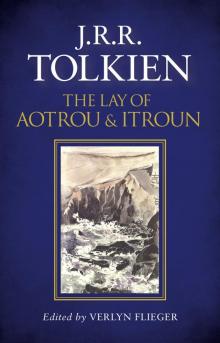 The Lay of Aotrou and Itroun
The Lay of Aotrou and Itroun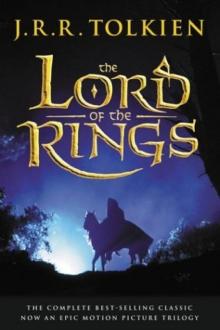 lord_rings.qxd
lord_rings.qxd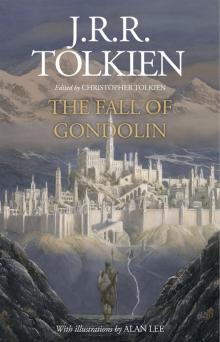 The Fall of Gondolin
The Fall of Gondolin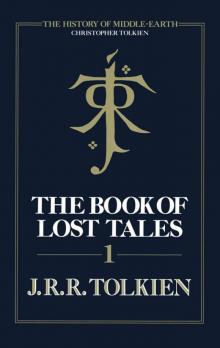 The Book of Lost Tales, Part 1
The Book of Lost Tales, Part 1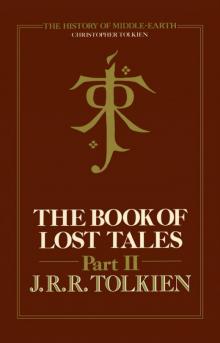 The Book of Lost Tales, Part 2
The Book of Lost Tales, Part 2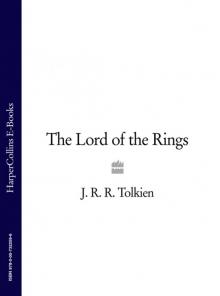 The Lord of the Rings
The Lord of the Rings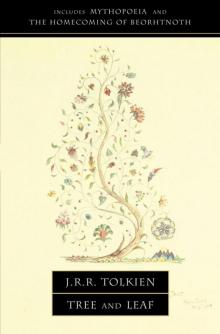 Tree and Leaf
Tree and Leaf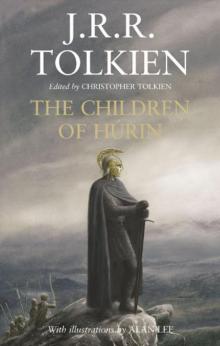 The Children of Húrin
The Children of Húrin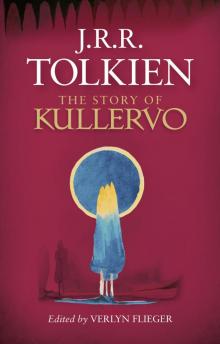 The Story of Kullervo
The Story of Kullervo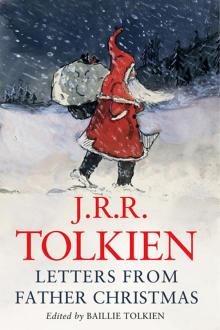 Letters From Father Christmas
Letters From Father Christmas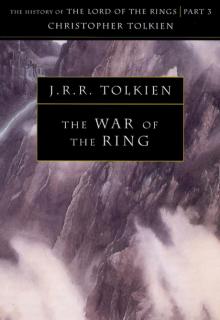 The History of Middle Earth: Volume 8 - The War of the Ring
The History of Middle Earth: Volume 8 - The War of the Ring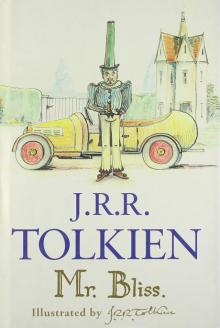 Mr. Bliss
Mr. Bliss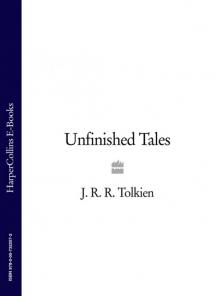 Unfinished Tales
Unfinished Tales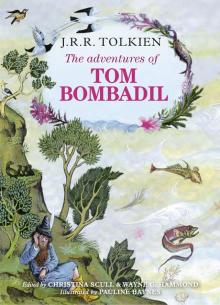 The Adventures of Tom Bombadil
The Adventures of Tom Bombadil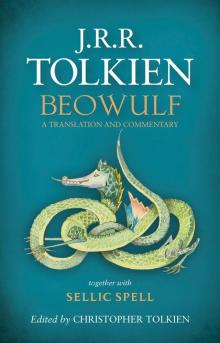 Beowulf: A Translation and Commentary, together with Sellic Spell
Beowulf: A Translation and Commentary, together with Sellic Spell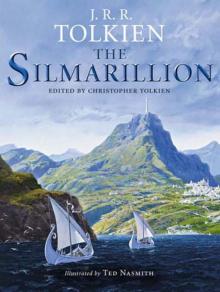 The Silmarillion
The Silmarillion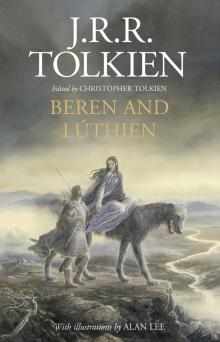 Beren and Lúthien
Beren and Lúthien